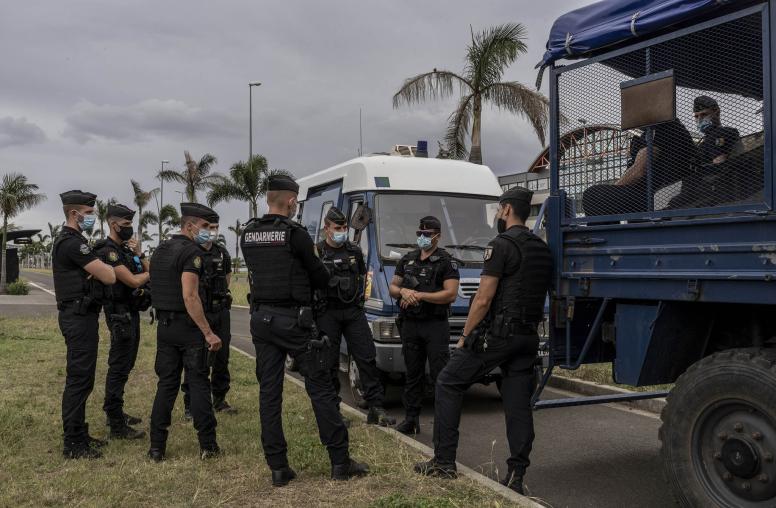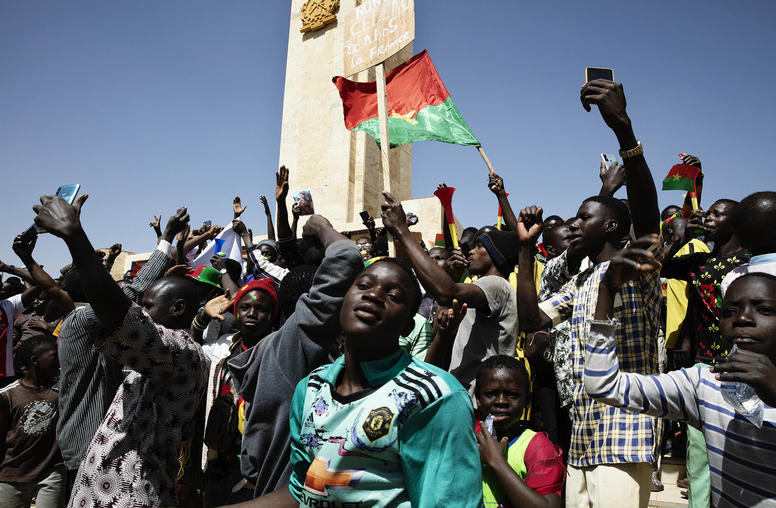Faith and Fragile States: Political Stability and Religious Freedom
Religion influences both peace and conflict worldwide. Violent extremism is often framed in religious terms, and religious discrimination continues to increase as both a driver and symptom of conflict. But, religion drives peace and coexistence as well and religious actors are essential for advancing religious freedom. Efforts to engage religious actors in countering violent extremism (CVE) and interfaith peacebuilding must take this dichotomy into account. On July 27, the International Republican Institute, Search for Common Ground, and the U.S. Institute of Peace hosted two panel discussions that explored the nexus of international religious freedom, CVE, and interfaith peacebuilding.
Perpetrators of violence in the name of a religion often target vulnerable religious minorities, resulting in increased discrimination, social hostility and extremist behavior. Within this scenario it is essential to understand the role religion plays, not only in providing theological beliefs but also in offering a sense of emotional and social belonging, spiritual meaning, and structure.
Misunderstanding religion’s role in people’s lives risks alienating potential allies from faith communities and civil society. The first discussion explored how policymakers and practitioners can engage religious actors in CVE efforts in ways that ensure protection and the advancement of international religious freedom. The second panel looked at how interfaith peacebuilding can positively impact state policy related to religion and minority rights by building constructive relationships between groups in divided societies.
These panels were organized as a side event of the U.S. State Department Ministerial to Advance Religious Freedom. Join the conversation on Twitter with #IRFMinisterial and #IRFSummit.
Agenda
Opening Remarks
- Rep. Frank Wolf (R-VA), Former U.S. Representative from Virginia
- Tony Garrastazu, Senior Director, Center for Global Impact, International Republican Institute
Panel 1: Religious Engagement in CVE
- Sheikh Abdullah bin Bayyah, President, Forum for Promoting Peace in Muslim Societies
- Humera Khan, President, Muflehun
- Oliver Wilcox, Deputy Director, Countering Violent Extremism, Bureau of Counterterrorism, U.S. Department of State
- Rev. Prof. Fadi Daou, Chair and CEO, Adyan Foundation, Professor, Holy Spirit University of Kaslik
- Moderator: Nancy Lindborg, President, U.S. Institute of Peace
Panel 2: Interfaith Peacebuilding
- His Holiness the 17th Gyalwang Karmapa Ogyen Trinley Dorje
- Cardinal John Olorunfemi Onaiyekan, Catholic Archbishop of Abuja, Nigeria
- Sadhvi Bhagawati Saraswati, Secretary-General, Global Interfaith WASH Alliance (GIWA), President, Divine Shakti Foundation
- Rev. Susan Hayward, Senior Advisor, Religion and Inclusive Societies, U.S. Institute of Peace
- Moderator: Mike Jobbins, Senior Director of Partnerships and Engagements, Search for Common Ground



